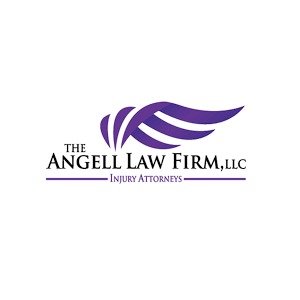Best Toxic Mold Lawyers in Charleston
Share your needs with us, get contacted by law firms.
Free. Takes 2 min.
List of the best lawyers in Charleston, United States
About Toxic Mold Law in Charleston, United States
Toxic mold refers to certain types of molds that produce harmful substances known as mycotoxins. In Charleston, United States, toxic mold can pose serious health risks and cause property damage. Understanding the legal implications surrounding toxic mold is crucial for protecting your rights and seeking appropriate remedies.
Why You May Need a Lawyer
While not all cases of toxic mold require legal assistance, hiring a lawyer can be beneficial in several situations:
- If you have suffered health issues due to toxic mold exposure and want to pursue a personal injury claim.
- If your property has been damaged by toxic mold and you need to file a claim with your insurance company or seek compensation from responsible parties.
- If you are a landlord or tenant facing mold-related issues and need legal guidance regarding responsibilities and rights.
- If you are purchasing or selling a property and suspect mold-related problems.
Local Laws Overview
Here are some key aspects of local laws in Charleston, United States that are particularly relevant to toxic mold:
- Landlords and property owners have a duty to maintain their premises in a safe and habitable condition free from toxic mold.
- Tenants must promptly notify landlords of any mold-related issues, and landlords must take appropriate actions to address the problem.
- In some cases, tenants may be entitled to compensation for mold-related health issues or property damage.
- Toxic mold cases can fall under personal injury claims, property damage claims, or breach of contract claims depending on the circumstances.
Frequently Asked Questions
Q: Can I sue my landlord for toxic mold exposure?
Yes, if your landlord was aware or should have been aware of the toxic mold and failed to take appropriate actions to address the issue, you may have grounds for a lawsuit.
Q: What should I do if I suspect toxic mold in my rental property?
Notify your landlord or property management immediately and document the issue with photographs or videos. If your landlord fails to address the problem within a reasonable timeframe, you may need to consult a lawyer.
Q: Can I be held responsible as a tenant for mold growth in my rental unit?
If the mold growth is a result of your negligence or failure to maintain the property properly, you may be held partially responsible. However, the landlord also has a responsibility to provide a safe and habitable environment, so liability can vary depending on the circumstances.
Q: How long do I have to file a toxic mold lawsuit in Charleston?
The statute of limitations for toxic mold lawsuits can vary. It's best to consult with an attorney as soon as possible to understand the specific timeframe applicable to your case.
Q: Are there any deadlines for notifying my landlord about mold issues?
While specific deadlines may not be mentioned in Charleston laws, it is wise to notify your landlord promptly upon discovering mold to avoid potential disputes and to demonstrate your concern for the issue.
Additional Resources
For more information and guidance on toxic mold in Charleston, United States, you may find the following resources helpful:
- Charleston County Health Department
- South Carolina Bar Association
- Centers for Disease Control and Prevention (CDC)
Next Steps
If you believe you need legal assistance in a toxic mold matter, follow these steps:
- Gather all relevant documentation, including lease agreements, correspondence with landlords, photographs, and medical records.
- Research and contact reputable attorneys in Charleston, United States who specialize in toxic mold cases.
- Schedule consultation appointments with potential attorneys to discuss your case and determine the best course of action.
- Choose a qualified attorney with experience in toxic mold litigation to represent your interests and guide you throughout the legal process.
- Follow your attorney's advice and cooperate fully to build a strong case and pursue the appropriate legal remedies.
Lawzana helps you find the best lawyers and law firms in Charleston through a curated and pre-screened list of qualified legal professionals. Our platform offers rankings and detailed profiles of attorneys and law firms, allowing you to compare based on practice areas, including Toxic Mold, experience, and client feedback.
Each profile includes a description of the firm's areas of practice, client reviews, team members and partners, year of establishment, spoken languages, office locations, contact information, social media presence, and any published articles or resources. Most firms on our platform speak English and are experienced in both local and international legal matters.
Get a quote from top-rated law firms in Charleston, United States — quickly, securely, and without unnecessary hassle.
Disclaimer:
The information provided on this page is for general informational purposes only and does not constitute legal advice. While we strive to ensure the accuracy and relevance of the content, legal information may change over time, and interpretations of the law can vary. You should always consult with a qualified legal professional for advice specific to your situation.
We disclaim all liability for actions taken or not taken based on the content of this page. If you believe any information is incorrect or outdated, please contact us, and we will review and update it where appropriate.








